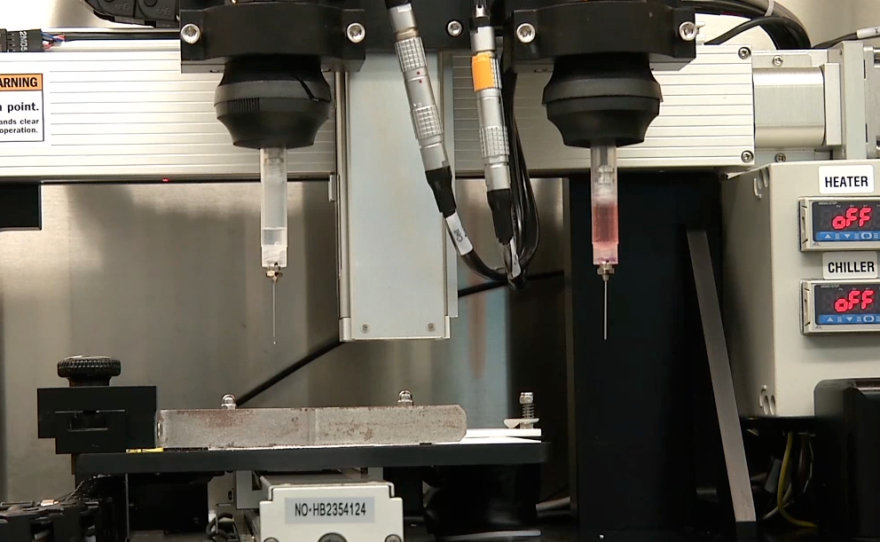One in five Americans in need of a liver transplant dies on the wait list. San Diego-based Organovo hopes to change that by creating transplantable liver tissue in the lab.
The company's 3-D printed organ tissue is already being used by pharmaceutical companies to test new drugs. And cosmetics giant L'Oreal is using Organovo's 3-D printed skin to test beauty products.
But on Tuesday, the company announced new plans to develop 3-D printed liver tissue for direct transplantation into people.
"People have thought for a long time that 3-D bioprinting showed promise for treating disease more directly, and that's what we're trying to do," Organovo CEO Keith Murphy said.
Organovo's goal is to create a patch of lab-assembled liver tissue that could extend a patient’s life, giving chronic liver disease patients who suffer an acute failure more time to receive a full organ transplant.
"We're not talking about replacing that patient's liver," Murphy said. "We're talking about adding a patch of tissue that compliments the liver's function.” He describes the solution as a "bridge to transplant."
Organovo obtains liver cells from adult donors for its 3-D printed tissue, but the cells come from organs not suitable for transplantation. Murphy said the challenge is to reassemble these primary human cells into a tissue that recreates the function of the liver. He says Organovo feel comfortable announcing their plans because of promising results in animal studies.
In an email to KPBS, Shaochen Chen — co-director of the Biomaterials and Tissue Engineering Center at UC San Diego — said Organovo will have to overcome potential mismatches between patients and the donated cells.
"For donated cells, the issue is compatibility between patients," Chen wrote.
Dr. Alan Hemming, chief of transplantation at UC San Diego Health, has collaborated with Organovo's subsidiary Samsara. He wrote in an email to KPBS, "Scaling the 3D printing approach up from patch to implantable solid organ will be a major challenge. However, this is an exciting first step."
Organovo's work on a transplantable liver patch is in early stages. Murphy said the company is still three to five years away from starting the human testing process, and any potential approval would be even further away. But to Murphy’s knowledge, Organovo is the first company to announce this approach toward changing how liver transplants are done.







